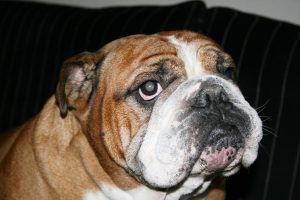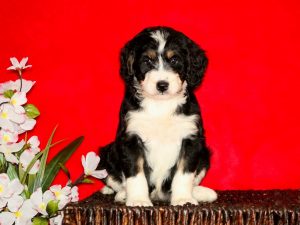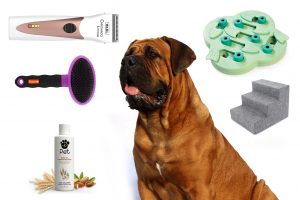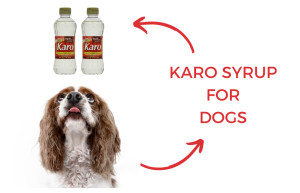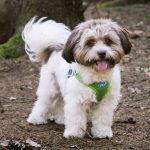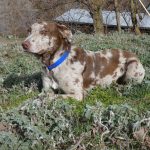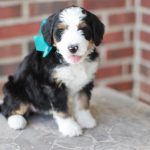Well, if you could not resist yourself after reading the title of this article, I can sense your embarrassment when your lovely dog eats poop when many other people are around or even if there is no one around.
There are several reasons behind your dog eating his poop, such as boredom, a health-related issue, or just a habit.
So, if you are looking for the possible reasons why your dog eats poop, keep reading this post. We’ll discuss common reasons why your dog eats its poop and how to deal with it.
Let’s explore more about it below.
Table of Contents
10 Reasons Why Your Dog Eats Poop
Underfeeding
We know you always do your best to feed your dog on time; you never want them to miss a meal! But even the most caring owners sometimes worry: Is my dog really getting enough food and all the right nutrients?
If you’re feeling unsure about your dog’s current diet, the best first step is always to chat with your veterinarian. They can help you create a personalized feeding plan and schedule to ensure your pup’s nutritional needs are met.
Keep in mind that a starving dog will often start looking for anything to eat, whether it’s table scraps, random items around the house, or even (and this is the tricky part) things they absolutely shouldn’t consume, including, unfortunately, their own or other animals’ poop.
Intestinal Parasites
It’s important to remember that Intestinal Parasites are quite common in dogs and can be a significant underlying cause of health issues. Since these unwelcome guests survive by consuming the nutrients from your dog’s food, your pup essentially has to feed two!
This is why dogs with parasites may feel constantly hungry. They need that “extra nutrition,” which can sometimes lead them to eat inappropriate things, including finding and consuming poop or other non-food items, in a desperate attempt to compensate for the lost sustenance.
Puppyhood
Puppies are naturally curious little explorers! Since they investigate the world primarily with their mouths, they often try to taste just about everything they find, and unfortunately, poop is often an easy and accessible target.
The good news is that most puppies eventually grow out of this phase as they get a little older and wiser. Nevertheless, it’s not something to just ignore. It’s crucial to stay vigilant and actively watch your puppy to discourage this behavior while they are still in this exploratory stage.
Different Types of Deficiencies
Sometimes, eating poop is your dog’s instinctive way of trying to replace nutrients they aren’t absorbing. They are essentially attempting to “self-medicate.”
The behavior is often rooted in four key deficiencies:
- Digestive Enzyme Deficiency: Their body can’t properly break down food, so the stool still contains undigested nutrients, making it appealing.
- Exocrine Pancreatic Insufficiency (EPI): A serious condition where the pancreas doesn’t produce enough enzymes, leaving the dog feeling constantly starved because they cannot absorb nutrients.
- Hydrochloric Acid (HCL) Deficiency: Low stomach acid leads to poor protein digestion, meaning they miss essential amino acids.
- Mineral Deficiency: A lack of key minerals (like iron) can trigger a primal instinct to consume inappropriate items to replenish what’s missing.
The most important step is consulting your vet for testing and treatment, as these underlying conditions are often manageable with the right supplements or diet changes.
Malabsorption
Here’s where things get a bit strangely interesting: if your dog suffers from malabsorption, it means their body isn’t successfully soaking up all the good stuff from the food they eat.
Because they are constantly missing out on crucial nutrients, they develop an insatiable need to find those missing calories wherever they can. This often explains why they will not only eat their own stool but also develop a keen, sometimes disgusting, interest in raiding the cat’s litter box!
For the dog, it’s a simple, primal mission: to get those undigested nutrients back, no matter the source.
Boredom
A dog that is left alone and feeling bored can quickly become a destructive dog. If they spend too much time without engagement, they’ll invent their own ways to entertain themselves, and those ways are rarely what we want!
This restlessness can show up as excessive barking, destructive chewing, tail chasing, or even (you guessed it) eating poop, as they look for anything—even inappropriate objects—to occupy their time and attention.
Punishment
When your dog has an accident in the house, please remember to NEVER scold or punish them. It’s so important to tackle this situation calmly.
Overreacting or getting upset won’t teach them anything positive; instead, it can actually make things worse. If your dog fears your reaction, they might simply try to hide the evidence next time, and that often results in them eating the poop to cover it up. Always use positive reinforcement training instead!
Stress
Stress can manifest in various ways in our dogs; you might notice things like withdrawal, sudden aggression, excessive sleeping, or a decrease in appetite.
Interestingly, sometimes a dog may turn to eating stool as a bizarre coping mechanism to deal with that stress. To prevent this, it’s vital to ensure your dogs feel secure and unstressed. Make sure to identify and eliminate or reduce exposure to anything they might be afraid of or truly dislike in their daily environment.
Copying Other Dogs
Sometimes, this behavior is simply a case of monkey see, monkey do! Puppies and dogs are great at observing others, and if they see another dog eating poop, whether it’s a littermate, an older dog in the household, or their own mother, they can easily pick up the habit, either out of curiosity or by copying a behavior they’ve witnessed.
Attention Seeking
Your dog loves you and definitely tries to entertain or please you; they thrive on your attention! However, when they’re looking for a way to get a reaction, some dogs mistakenly figure that poop hunting is a fun and exciting game. They might think they are doing something entertaining that will get your focus.
How to Deal with Poop Eating?
As you already know, some top reasons behind your dog’s bad habits, let us find some best practices to deal with them.
Exercise and Mental Stimulation

To prevent boredom-driven behaviors (like eating poop), make sure you are meeting your dog’s mental and physical needs every day! This means providing plenty of exercise and daily walks, along with fun mental stimulation activities to keep their brain sharp and healthy.
Engage them with safe, entertaining toys, try enrichment puzzles, and play fun, interactive games like fetch or hide-and-seek. A tired dog is usually a happy, less destructive dog!
Cleanliness
When it comes to breaking this habit, cleanliness is absolutely the most important tool, especially if you have multiple pets (both dogs and non-canine friends like cats).
When your dog is in the backyard or out on a regular walk, stay vigilant: keep an eye on them and clean up any poop immediately after it happens. If you have a cat, it’s just as crucial to keep those litter boxes impeccably clean so your dog doesn’t even get the chance to raid that tempting treasure box!
Balanced Diet
Don’t feel like you have to stick to just one type of food forever! It’s highly beneficial to offer your dog a varied diet that includes essential ingredients, like digestive enzymes and other necessary nutrients.
The best way to figure out the right food rotation and supplement plan for your individual dog is always to talk to your veterinarian. They can help you design the perfect, balanced diet!
Get Your Dog Checked
When in doubt, the very best step you can take is to schedule a visit with your veterinarian. Ask them to run a simple screening for intestinal parasites and check for any potential nutritional deficiencies.
These tests are quick, straightforward, and are the fastest way to get to the root cause of your dog’s behavior, ensuring you can start the right treatment right
Never Punish Your Dog
As we’ve mentioned before, punishing your dog after an indoor accident can unfortunately lead to several other behavioral problems down the road.
Instead of reacting with frustration, try to be calm, polite, and focused on rewarding the behavior you do want. If you catch them in the act, gently interrupt and lead them outside, and then offer major praise and treats when they finish their business in the right spot!
Add Supplements to Your Dog’s Diet
When you decide to introduce supplements to your dog’s diet, we highly recommend you speak to your vet first rather than trying to experiment on your own.
Every dog has a unique set of nutritional needs! If you try to guess what they need, you could accidentally end up giving them too little (underfeeding) or too much (overfeeding certain nutrients), which could throw their balance off. Your vet can provide safe, personalized recommendations.
Wrapping it up:
So, dog parents, that covers some of the most common reasons behind this weird and sometimes embarrassing habit: poop eating, and gives you some handy ways to start tackling it.
Ultimately, remember that puppies, especially, are like toddlers who need constant guidance and attention, sometimes even more than a human child! Providing excellent training, early and consistent socialization, and a watchful eye are the most effective preventative steps you can take. By addressing both the behavioral side and ruling out any health issues with your vet, you can ensure your beloved companion is happy, healthy, and focused on the right things… definitely not the backyard cleanup!


